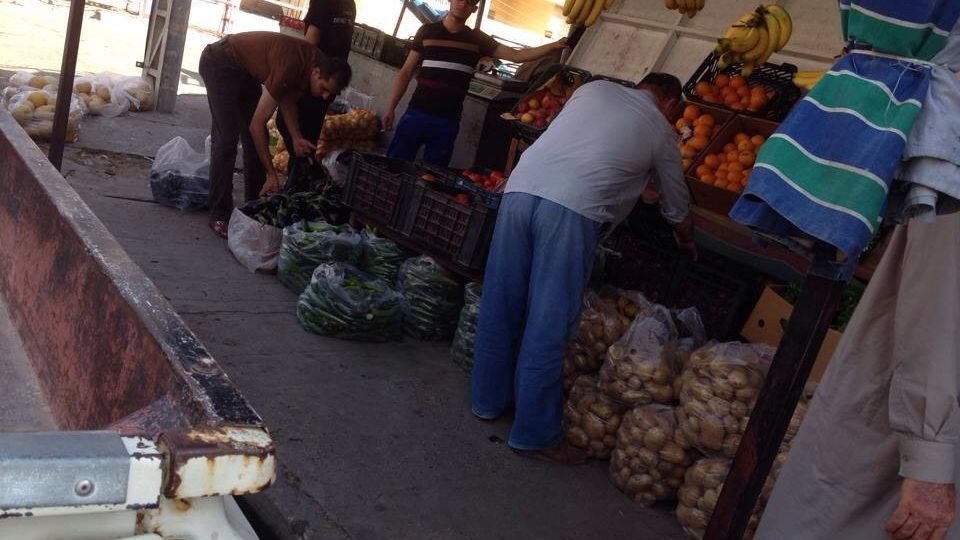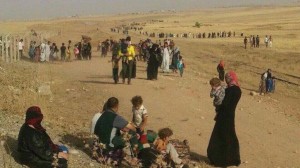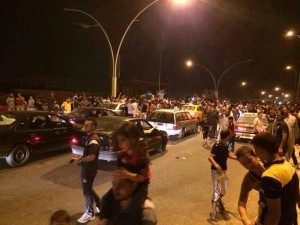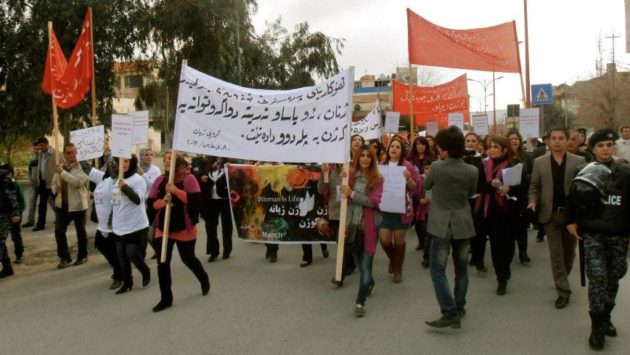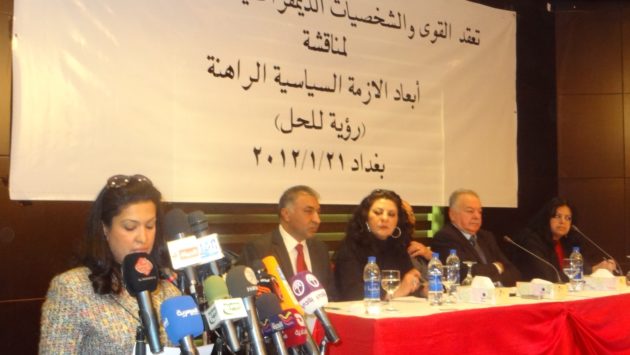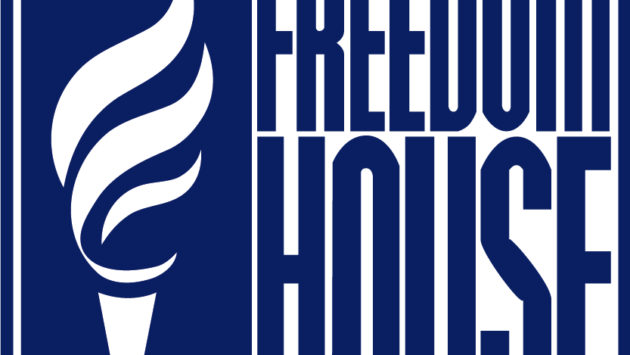A Voice From Inside Mosul
Interview by the Iraqi Civil Society Solidarity Initiative (ICSSI), with an Iraqi human rights defender (“QC”) from Mosul – the 18th of June 2014
What is the situation now in the city of Mosul?
QC: In terms of the security situation, there is no fighting or bombing. The roads are open, but there is a shortage of basic goods and services. For example there is no electricity or Internet, and water, as well as gas cylinders and fuel are in short supply. Food prices are high, too. While the hospitals are still functioning, other government institutions have shut down.
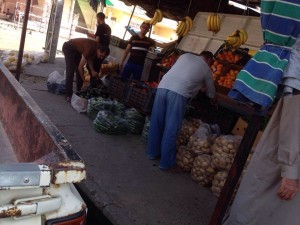
Is it possible for non-governmental organizations [NGOs] and human rights defenders [HRDs] to work in Mosul?
QC: No, it is not possible for NGOs and HRDs to work freely. Insurgents, especially extremists, do not accept civil society, and if I said I wanted to work in Mosul they would punish me. They call it “Had”; it is punishment according to Sharia law. Organizations must operate secretly in order to send reports about the situation. I also prefer to keep my name unknown for this interview. Civil society in our cities must work in alignment with the government, otherwise you will be accused of supporting the militants. But at the same time, the insurgents also reject any independent role for civil society.
What about the displaced — are there people displaced from Mosul? How large are the numbers?
QC: There are many families — as many as one hundred thousand — who fled to the Kurdistan Region of Iraq [KRG]. We are talking about perhaps five hundred thousand people, the majority of whom are children and the elderly. The KRG authorities did not allow most of them to enter because they require that those who enter have a guarantor from the Kurdish region. Many of these now internally displaced persons [IDPs] are being kept in very basic camps. The crisis of the IDPs is immense and urgently requires the assistance of humanitarian organizations. The crisis is growing worse, especially after the battles in the city of Tal Afar, which created thousands of newly displaced civilians.
Who controls Mosul? Are there now sanctions or reprisals against civilians?
QC: The situation in Mosul has been very bad since militants seized control of the entire city. The city’s immediate future is not clear. People do not know whether there will be a military strike, or if we will remain under the rule of the gunmen who seized power (who are not themselves ruled by law), or if they will form a government in these areas. Until now there have been no acts of revenge or collective punishment of civilians. We heard that a new governor has been appointed, a former army officer named Hashim Aljmas.
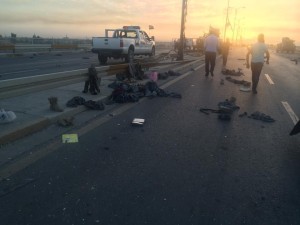
Who are the gunmen who entered Mosul?
QC: There was a mixture of armed groups who entered Mosul: some Islamic extremists (from ISIS) and other rebels (or nationalists) some of whom are former members of the army and some Ba’athists. In Mosul there are now different groups that are in control of each neighborhood. Generally, these groups do not discuss their future plans for the city, and they do not allow the media to operate in the city.
What do the people of Mosul feel about what has happened? Why do they think that the city fell?
QC: The main reason for the fall of the city of Mosul – the second largest city in Iraq – is that the Maliki government did not respond to the demands of the citizen protestors who demonstrated in Mosul, Anbar, Salahuddin, Diyala and Hawija over a year ago and so the citizens did not support the Iraqi army.
The policy of the Iraqi government headed by Nouri al-Maliki has been totally sectarian in the way it has operated in the Iraqi provinces. The government has almost totally excluded representatives of the Sunni population from the sovereign ministries, or left them with no real authority. Even the new Iraqi army was formed on this basis.
How is the Iraqi army viewed by the sons of the city of Mosul?
QC: The Iraqi army unfortunately does not support a doctrine of loyalty to the homeland (or an Iraq that is inclusive of all people); instead it is loyal to the Madhhab or Shia doctrine. It deals with citizens according to their religious sect. The armed forces have attacked people in the cities of Mosul, Anbar, Salahuddin, Diyala and Hawija. They have carried out arrests, torture and extortion. There have also been many cases of rape by members of the army, both outside and inside prisons.
But Mosul contributed to the recent elections, wasn’t that a sign of hope for change through peaceful means?
QC: The last election was frustrating. Most of the political blocs accused the Prime Minister of rigging the election for the purpose of securing a large number of seats (93) in the Iraqi parliament. This has raised a fear among many politicians and citizens that Nouri al-Maliki would return for a third term as prime minister of Iraq, which would essentially amount to the creation of a new dictatorship. Everyone is aware how he has attempted during his two terms in power to increase his control over all aspects of political life, especially the “independent” commissions including the Electoral Commission and the Human Rights Commission. He accused his opponents in Parliament of crimes and had many arrested and imprisoned. Now the state security institutions are largely dominated by one sect (Shia) and are constantly fed sectarian ideology.
I think the insurgents planned this current invasion of the provinces to coincide with the announcement of final election results, which was an excellent time for them to suggest to the citizens that their revolution would rid the Sunnis of the sectarian Maliki government, which is now trying to control the state for a third term. Maybe this is why rebels received a warm welcome from some citizens in the provinces where the insurgents took over. When the gunmen entered the city of Mosul, the military was very weak due to fear of reprisals from the community (since most of the community hates the army). This explains why military commanders fled, and why the army was unable to defeat what was only a small number of insurgents.
Do you want the army to “free” the city of Mosul?
QC: I think the solution must be a political one first. The Iraqi army, if it acts professionally and patriotically, and works in collaboration with the people of the city, is capable of freeing Mosul from the insurgents. But there must be a military plan that takes into account the population of the city and ensures the safety of Mosul’s civilians. There are a million civilians who may now be at risk. Aerial bombardment would be especially catastrophic for them.
What will help the civilians in Mosul? What is the role for the U.S. in the future of Mosul?
QC: I think we need to guarantee and strengthen the capacity and the activity of civil society, so that it becomes a link between the government and society, so that citizens are empowered to play a greater role in identifying and implementing solutions to problems in the future.
I think that recent events are the beginning of the division of Iraq into three regions (Sunni, Kurdish and Shiite). This is increasingly considered by many politicians to be the solution to political and armed conflict among the different groups in Iraq. The Kurdish authorities and the leaders of the insurgents seem to have agreed that this is what will happen. Iraqis were once unified, but the experience of the past eight years and the likely continuation of the current political situation makes it almost impossible for our cities to go on like this.
I think that America understands what is happening and that it will push for the division of Iraq. The US will not necessarily send its military to Mosul or Iraq, but it will clearly play a role in what will be agreed upon. People here want civilians to rule the city so we can solve our problems ourselves. We want the extremists to leave and we want the end of military activities and the presence of weapons. But at the same time we don’t want to return to sectarian rule in any way.

